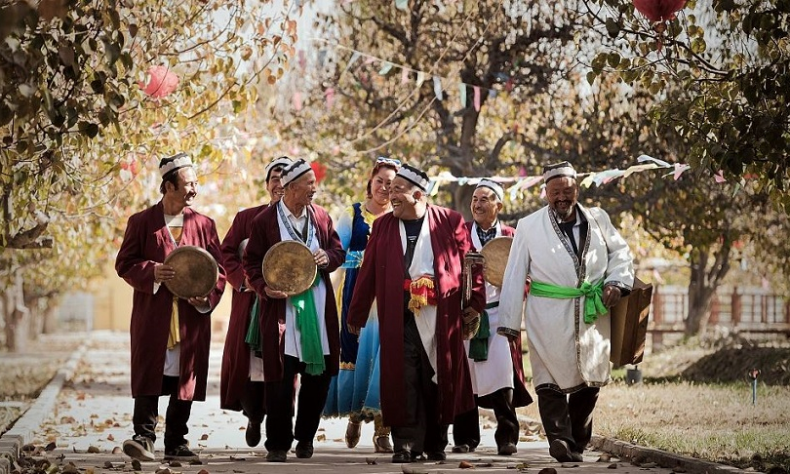Vocational Education and Training Is Key Measure to Protect Human Rights

The vocational education and training centers are not a violation of human rights or a persecution of religion, but instead a promotion of human rights and a protection of the freedom of religious belief.
Religious extremism and terrorism have jeopardized Xinjiang for a long time. In the past, with the infiltration of religious extremism and terrorism into Xinjiang, some people – influenced by extremist thoughts – believed that Islam in Xinjiang had to be changed with violent and extreme means.
Some people, in the name of Islam, interfere in others’ personal life after being poisoned by extremist thoughts. For example, they think that women must stay at home and should not go out to work. Extremists claim that the Muslim religious belief in Xinjiang is not pious and should return to the so-called “true” Islam of the Middle Ages. They also insist that Muslim people in Xinjiang must stay away from so-called heretics.
Worse, some people advocate expelling people who are not Muslims, and establishing a so-called caliphate in Xinjiang. In order to realize these absurd thoughts, they carried out terrorist attacks, which killed innocent people and disturbed social and economic development in Xinjiang.
A series of short videos showing the lives of trainees at vocational education and training centers in Xinjiang have circulated widely online recently. In the videos, these trainees work in all kinds of professions, and gain a new life after they learn vocational skills and get rid of extremist thoughts.
The establishment of vocational education and training centers is a useful exploration of the means of countering terrorism and de-radicalization. The government set up the vocational education and training centers in accordance with the law to help the trainees. The trainees are those who were influenced by extremism but who have not committed crimes; those who have participated in terrorist activities and are possible threats but who have not caused hazards in real life; and those who have participated in terrorist activities but were exempted from punishment in accordance with the law. At the vocational education and training centers, trainees learn standard Chinese, legal knowledge, and professional skills to eradicate extremist ideas and achieve the goal of de-radicalization.
Beyond that, the vocational education and training centers also help trainees shake off poverty and achieve personal development. The centers help trainees learn professional skills, find jobs, and achieve the goal of poverty alleviation. To make them become part of the driving forces of Xinjiang’s modernization process is the way to end Xinjiang’s turbulence and rebuild its prosperity and stability with the least cost. Therefore, the vocational education and training centers have made remarkable achievements in both de-radicalization and building a harmonious society in Xinjiang.
Bahtiyar, the owner of a rose jam factory in Xinjiang, promoted rose jam while attending the Canton Fair after learning standard Chinese. As a result, the annual sales of his factory increased to over 1 million yuan from about 100,000 yuan. This not only promoted the sales of local specialties, but also helped female workers from the local area shake off poverty through employment.
Vocational education and training centers exist to promote human rights and protect freedom of religious belief. The most important human rights are the rights to live and develop. After entering the training centers, trainees get rid of the harm of extremism, learn professional skills, and find a job, or start their own business afterwards. They can stay away from illegal and criminal activities. Meanwhile, Xinjiang has thus got rid of the harms of terrorist attacks, and the religious life of Muslims there has returned to normal. Therefore, the vocational education and training centers are not a violation of human rights or a persecution of religion, but instead a promotion of human rights and a protection of the freedom of religious belief.
The series of short videos show the real lives of these trainees after graduation. Through vocational skill training, they have got rid of religious extremism and obtained skills to overcome poverty. Therefore, it is necessary to evaluate the roles of the vocational education and training centers in Xinjiang objectively. Those who spread slanders and distortion will only bring contempt upon themselves.
The author is a researcher with the Institute of World Religions, Chinese Academy of Social Sciences.
 Facebook
Facebook
 Twitter
Twitter
 Linkedin
Linkedin
 Google +
Google +










